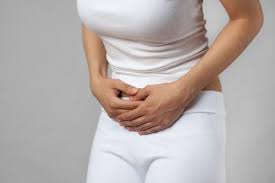
The Endometriosis is a disease of the female reproductive system. This condition can result in the growth of tissues from the inner wall of the uterine wall outside of the uterine cavity. Endometriosis occurs when endometrial tissue grows outside the uterus. If a woman suffers from endometriosis, the tissue also undergoes a process of thickening and breaking down, which is the same as the menstrual cycle. However, the blood eventually settles and cannot come out because it is located outside the uterus, which can irritate surrounding tissue.
If you are concerned by this condition we would like to tell you before going any further that It is in the concern to help you get rid of your endometriosis for good that the health experts of PLANTESAFRICAINES after much research offers you a solution. Very simple based on medicinal plants.
The natural treatment that we offer to cure your endometriosis permanently and without surgery naturally is composed of 100% natural herbal teas. It is an effective, fast and lasting natural remedy which allows to permanently eliminate endometriosis. It has already proven its effectiveness by curing many patients. So if you want to get rid of your endometriosis and get pregnant fast, this is what you need. With us, no recurrences .
Click on the image below to discover this natural treatment.

Telephone / whatsapp / 00229999546463
The Endometriosis causes the development of endometrial tissue, which normally lines the uterus, outside the uterus. It can cause chronic pain, heavy or irregular periods, and infertility. Some people also report weight gain and bloating.
Little research has explored why endometriosis might lead to weight gain. People with endometriosis who suspect that the disease is causing weight gain or preventing them from losing weight should talk to a doctor.
Sometimes other conditions such as polycystic ovary syndrome (PCOS) can mimic the symptoms of endometriosis.
In this article, we take a look at how endometriosis can lead to weight gain, and how to achieve and maintain a healthy weight.
Endometriosis causes weight gain?
Although there is a lot of anecdotal evidence that has linked endometriosis to weight gain, scientific research does not yet prove it.
some women feel that endometriosis contributes to weight gain and poor body image.
Endometriosis can cause weight gain in at least four ways.
Bloating
Bloating and fluid retention are common symptoms of endometriosis. Although bloating does not cause fat, it can feel heavier and thicker.
Bloating can also change the way clothes fit. Many people notice that bloating is worse immediately before or during their period.
Estrogen
The endometriosis is an estrogen-related disease, which means that symptoms worsen when estrogen levels are higher.
Some people believe that estrogen dominance leads to weight gain. It happens when the body produces too much estrogen, exceeding progesterone.
Drugs to treat endometriosis
Many studies show that treatments for endometriosis can lead to weight gain.
One of the most effective treatments for endometriosis is a synthetic form of the hormone progesterone. Progesterone slows the growth of endometrial tissue.
However, many women experience weight gain with progesterone. According to a 2010 Trusted Source study , 40 to 50% of women gain weight or retain water with progesterone treatment.
Pain
The endometriosis is painful. For some people, the pain is severe enough to make it difficult to exercise and keep active. Over time, this can lead to weight gain.
Some symptoms of endometriosis can make a person look or feel heavy. These symptoms can include:
Bloating
Constipation
Water retention
Endometrial tissue masses in the pelvic region
Other symptoms of endometriosis can include:
Severe cramps during periods
Pelvic pain between periods
Pain during intercourse
Difficulty getting pregnant
Bladder pain
Strong urge to urinate
Incontinence
Pain during bowel movements or urination
Unexplained pain in the stomach
The severity of symptoms does not necessarily indicate the extent of adhesions in endometriosis. Some people with severe endometriosis have no symptoms. People with mild endometriosis can have severe symptoms.
How to lose weight with endometriosis
Many natural and alternative health sites promise to help people with endometriosis lose weight by following a specific diet. However, there is no clinical evidence to suggest that a diet specific for endometriosis can contribute to weight gain or reduce symptoms of endometriosis.
Having surgery to remove endometrial tissue that is growing outside the uterus can help relieve pain and may reduce bloating. This, in turn, can help a person lose weight or appear slimmer.
To lose weight in any situation, a person must burn more calories than they consume. Some strategies that can support this goal include:
Increase physical activity. Walk as often as possible and take regular breaks after long periods of sitting. The Reliable Source 2015-2020 Physical Activity Guidelines for Americans advises getting 150 to 300 minutes of moderate-intensity cardio or 75 to 150 minutes of high-intensity cardio per week. They also advise strength training at least 2 days a week.
Eat a variety of filling and lower calorie foods. Avoiding sugary snacks, sodas, and other sugary drinks in excess can also help.
Eat more protein. Protein can improve metabolism and help a person feel fuller for longer. This reduces the desire to eat high calorie snacks.
People with endometriosis should talk to a doctor about weight loss strategies, especially if they have other conditions such as PCOS.
PCOS has symptoms similar to endometriosis. PCOS is caused by hormonal imbalance and, like endometriosis, can cause painful periods.
Other symptoms of PCOS include:
Irregular or absent periods
Excessive hair
Unexplained weight gain
Difficulty getting pregnant
Insulin resistance or diabetes
People with endometriosis can also get PCOS. For this reason, it is important that people with irregular periods, painful periods, or fertility problems seek testing for both of these conditions.
PCOS can cause weight gain, often due to insulin resistance. A low glycemic index diet may contribute to weight gain associated with PCOS. Some people also find hormonal birth control pills to relieve symptoms.
Endometriosis is a chronic disease. However, a number of management strategies, including hormone therapy and surgery, can help reduce symptoms.
Many women with endometriosis feel frustrated by the little research available on weight gain related to endometriosis. A doctor who listens and takes a person's symptoms seriously is the key to finding effective treatment.
By discussing weight gain with their doctor, patients can gain personalized weight loss strategies and support for dealing with the challenges of living with endometriosis .